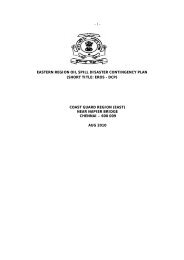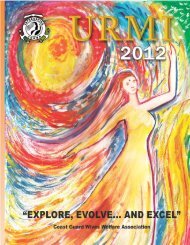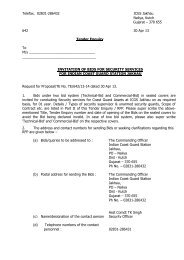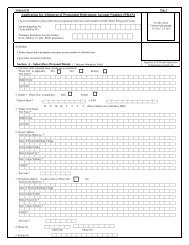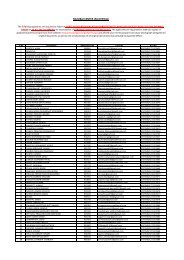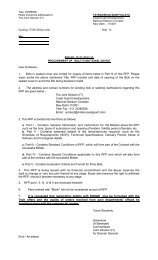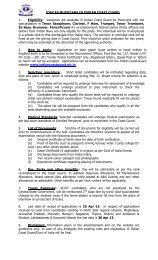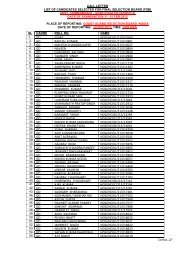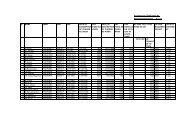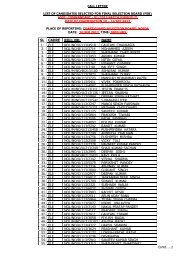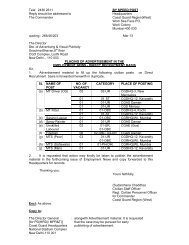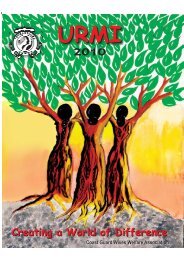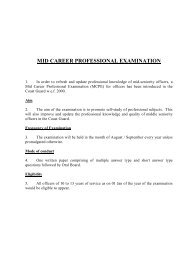Jan 2009 edition - Indian Coast Guard
Jan 2009 edition - Indian Coast Guard
Jan 2009 edition - Indian Coast Guard
Create successful ePaper yourself
Turn your PDF publications into a flip-book with our unique Google optimized e-Paper software.
<strong>Jan</strong> <strong>2009</strong> Vol X Issue 1<br />
Damage, 1969 (CLC). Key elements of both include the<br />
need for the registered owner of a vessel to maintain<br />
compulsory insurance cover; the right of direct action,<br />
which would allow a claim for compensation for pollution<br />
damage to be brought directly against an insurer; and<br />
the principle of strict liability, which obviates the need to<br />
prove negligence. Oil fuel tank protection Rules to limit<br />
the size of oil fuel tanks on new ships and ensure they<br />
are protectively located are included in the International<br />
Convention for the Prevention of Pollution from Ships<br />
(MARPOL Convention). A new regulation on oil fuel tank<br />
protection was adopted in 2004 and entered into force<br />
on 01 <strong>Jan</strong>uary 2007.<br />
The regulation applies to all ships delivered on or after<br />
01 August 2010 with an aggregate oil fuel capacity of<br />
600 m 3 and above. It includes requirements for the<br />
protected location of the fuel tanks and performance<br />
standards for accidental oil fuel outflow. A maximum<br />
capacity limit of 2,500 m 3 per oil fuel tank is included<br />
in the regulation, which also requires administrations<br />
(flag States) to consider general safety aspects, including<br />
the need for maintenance and inspection of wing and<br />
double-bottom tanks or spaces, when approving the<br />
design and construction of ships in accordance with the<br />
regulation.<br />
ANTI-FOULING SYSTEMS<br />
CONVENTION<br />
The entry into force requirements for the AFS<br />
Convention has now been met, following the accession to<br />
the treaty by Panama. The Convention has entered into<br />
force internationally on 17 September 2008. A “harmful<br />
anti-fouling system” is currently defined as any system<br />
that includes organotin compounds which act as biocides,<br />
although there is provision for additional harmful systems<br />
to be included in the future.<br />
Compliance with the convention is achieved if the ship:<br />
• Does not bear such compounds on its hull or<br />
external parts or surfaces; or<br />
• Bears a coating that forms a barrier to such<br />
compounds leaching from the underlying noncompliant<br />
anti-fouling systems.<br />
This applies to all ships except fixed or floating<br />
platforms, floating storage units (FSUs), and floating<br />
production storage and off-loading units (FPSOs) that<br />
have been constructed prior to 01 <strong>Jan</strong>uary 2003 and that<br />
have not been in dry-dock on or after 01 <strong>Jan</strong>uary 2003.<br />
While fixed<br />
or floating<br />
platforms,<br />
FSUs and<br />
FPSO which<br />
have been<br />
constructed<br />
prior to 01 July<br />
2003, but have not been into dry dock on or after<br />
that date, are not legally required to comply with the<br />
ban on bearing TBT compounds, it is recommended that<br />
they do so as soon as is reasonably practicable.<br />
Survey and Certification<br />
Only ships of 400 gross tonnage and above (excluding<br />
fixed, floating platforms, FSUs and FPSOs) engaged in<br />
international voyages are subject to surveys under the<br />
Convention. Surveys are required as follows :<br />
• An initial survey before the ship is put into service<br />
or before the International Anti-Fouling System<br />
Certificate is issued for the first time; and<br />
• A survey when the anti-fouling systems are<br />
changed or replaced, undertaken to enable the<br />
endorsement of the Anti-Fouling System Certificate.<br />
16



